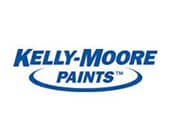Is your flat roof showing signs of wear? Don’t wait for leaks to tell you it’s time for a change. Dive into our comprehensive guide on flat roof replacement, where you’ll discover essential tips, material choices, and expert advice to ensure your roof is both durable and stylish.
Signs Your Flat Roof Needs Replacing
Identifying early signs of deterioration is key to maintaining the integrity of a flat roof. Key indicators include:
- Pooling Water: A clear sign of concern is water pooling on the roof, leading to stress, cracks, and potential structural damage. Regular checks, especially post-rainfall, are essential.
- Surface Damage: Visible issues like rips, tears, blistering, or bubbling on the roof’s surface indicate a compromised roof, often leading to leaks.
- Interior Signs: Water spots, discoloration, mold, or mildew on interior ceilings suggest water damage from leaks, hinting at serious roof issues.
- Flashing Issues: Damage or separation in the flashing around chimneys and vents is a critical sign, as it can cause leaks and structural harm.
- Membrane and Fastener Problems: Be aware of cracks in the roof coating, membrane issues, or loose fasteners, which signal a roof nearing its end.
- Rising Energy Bills: An increase in energy costs can imply failing insulation and reduced efficiency, often associated with an aging roof.
- Age and Visible Damage: The roof’s age and visible signs of deterioration, such as cracks and tears, are strong indicators that replacement may be necessary.
Proactive attention to these signs can prevent emergency repairs and prolong the life and safety of your flat roof.
Choosing the Right Materials for Your New Flat Roof
Choosing the right materials for your new flat roof installation is crucial for longevity, efficiency, and overall performance. Here’s what you need to consider:
- Durability and Lifespan: Select materials that offer a balance between long-term durability and cost-effectiveness. Materials like PVC, TPO, and EPDM rubber are popular for their resistance to weathering, UV rays, and tears.
- Weather Resistance: Consider your local climate. In areas with heavy rainfall or extreme temperatures, materials like modified bitumen or built-up roofing (BUR) can provide extra protection.
- Energy Efficiency: Energy-efficient materials can significantly reduce heating and cooling costs. Reflective coatings or single-ply membranes are excellent choices for keeping a building cooler in hot climates.
- Weight and Structural Considerations: Ensure that your building can support the weight of the chosen material. Lightweight options like PVC or TPO are suitable for structures with weight limitations.
- Maintenance Requirements: Some materials require more maintenance than others. PVC and TPO offer lower maintenance, while asphalt-based materials like BUR might need more regular upkeep.
- Aesthetic Appeal: While functionality is paramount, consider the aesthetic aspect as well. The right material should complement your building’s design and style.
- Cost: Budget is always a consideration. Weigh the initial installation cost against long-term benefits like durability and energy savings.
Selecting the right material for your flat roof is a decision that impacts your property’s protection, efficiency, and aesthetics. Consult with roofing professionals to assess your specific needs and make an informed choice that aligns with your goals and budget.
Navigating the Types of Flat Roofs
Choosing the right type of flat roof is essential for meeting specific needs and considerations such as climate, building use, and budget. Here’s a guide to the most common types:
Built-Up Roofing (BUR)
Features: BUR is constructed from multiple layers of asphalt and felt or fiberglass mats. This composition provides excellent durability and weather resistance.
Best For: Buildings needing robust protection against varied weather conditions.
Modified Bitumen (Mod-Bit)
Features: Mod-Bit is a single-ply rolled roof enhanced with polymers for increased flexibility and strength. It’s often installed using heat or cold adhesives.
Best For: Roofs requiring flexibility and strength, suitable for moderate to high-temperature areas.
EPDM (Ethylene Propylene Diene Monomer)
Features: A synthetic rubber membrane, EPDM is known for its durability, flexibility, and resistance to UV rays, ozone, and extreme temperatures.
Best For: Environments with fluctuating temperatures and areas exposed to sunlight.
TPO (Thermoplastic Polyolefin)
Features: Popular for its energy-efficient properties and hot-air welded seams, TPO offers resistance to UV exposure and chemical damage.
Best For: Energy-conscious property owners looking for a modern, durable solution.
PVC (Polyvinyl Chloride)
Features: PVC roofs provide excellent resistance to chemicals, fire, and UV light, offering a low-maintenance option.
Best For: Environments with chemical exposure or where fire resistance is a priority.
Concrete
Features: Known for its durability and fire resistance, concrete can also serve as a base for other flat roof materials.
Best For: Structures that require exceptional strength and fire resistance.
Metal
Features: Metal roofs made of aluminum, tin, copper, steel, or zinc are renowned for longevity, durability, and recyclability.
Best For: Commercial and residential applications seeking a long-term, sustainable option.
Green Roofing
Features: Green roofs involve the installation of a living plant layer and offer improved insulation, stormwater management, and extended roof life.
Best For: Eco-friendly projects aiming for environmental benefits and aesthetic appeal.
Each type has its unique benefits and suitability, making it crucial to evaluate the specific needs of your building and environment before making a choice.
Hiring Professionals for Flat Roof Replacement
Hiring professional contractors for flat roof replacement is critical for ensuring quality and safety. While DIY projects may seem cost-effective, they come with significant risks, including improper installation, potential for accidents, and overlooking critical structural issues.
Skilled contractors bring expertise, experience, and the right tools to the job, ensuring that your roof is installed correctly and to the highest standards. They can also navigate complex building codes and obtain necessary permits.
Additionally, professional installation usually includes a warranty, offering peace of mind and protection for your investment. Ultimately, entrusting your flat roof replacement to professionals is a wise decision, safeguarding both your property and personal safety.
Replacing a Flat Roof? Contact Revival Roofing Today!
Ready to replace your flat roof with confidence? Look no further than Revival Roofing. Our expert team specializes in installation, repair, and maintenance, ensuring your roofing project is handled with unmatched professionalism and skill.
Trust Revival Roofing for a seamless, reliable service experience. Contact us today to secure the best roofing solutions!








